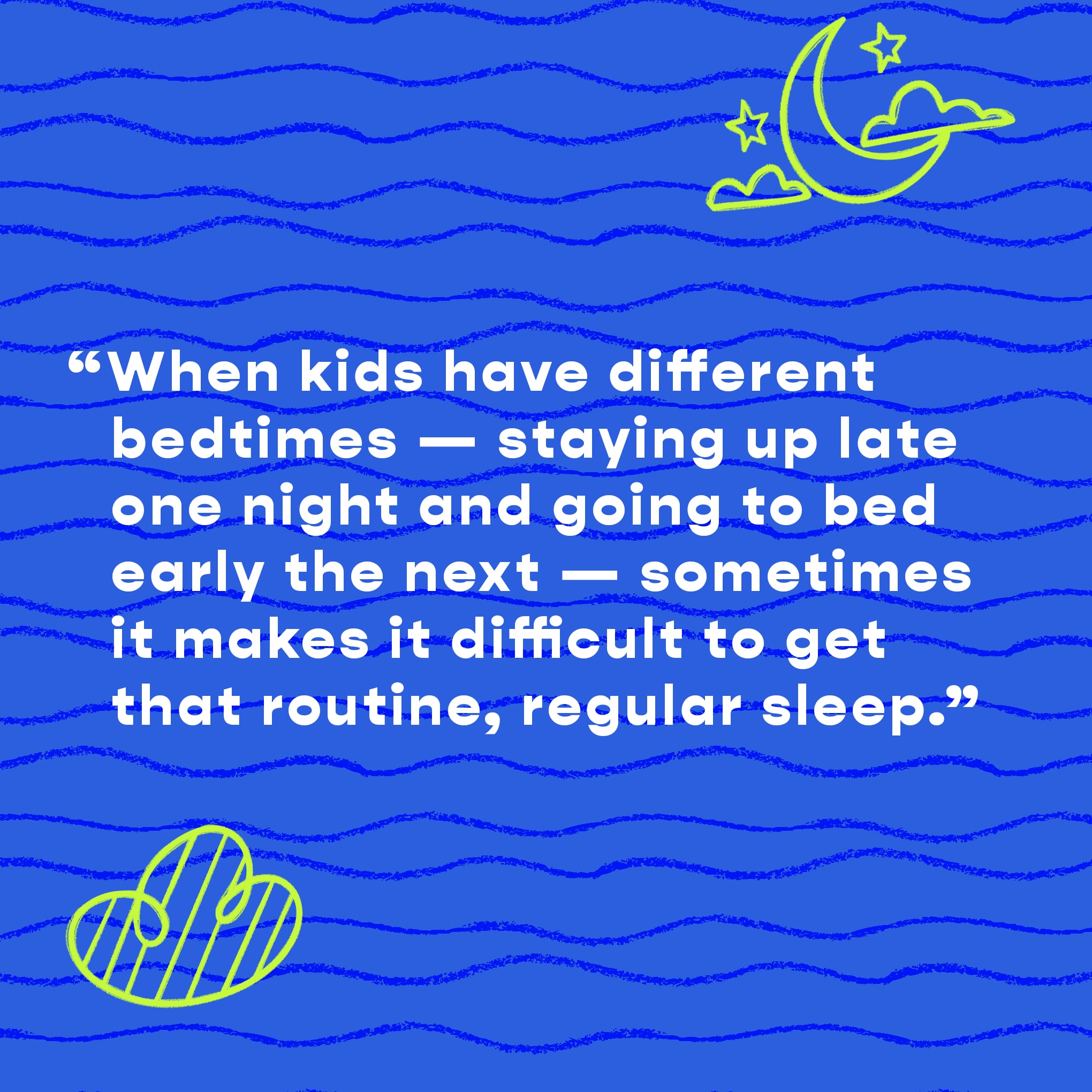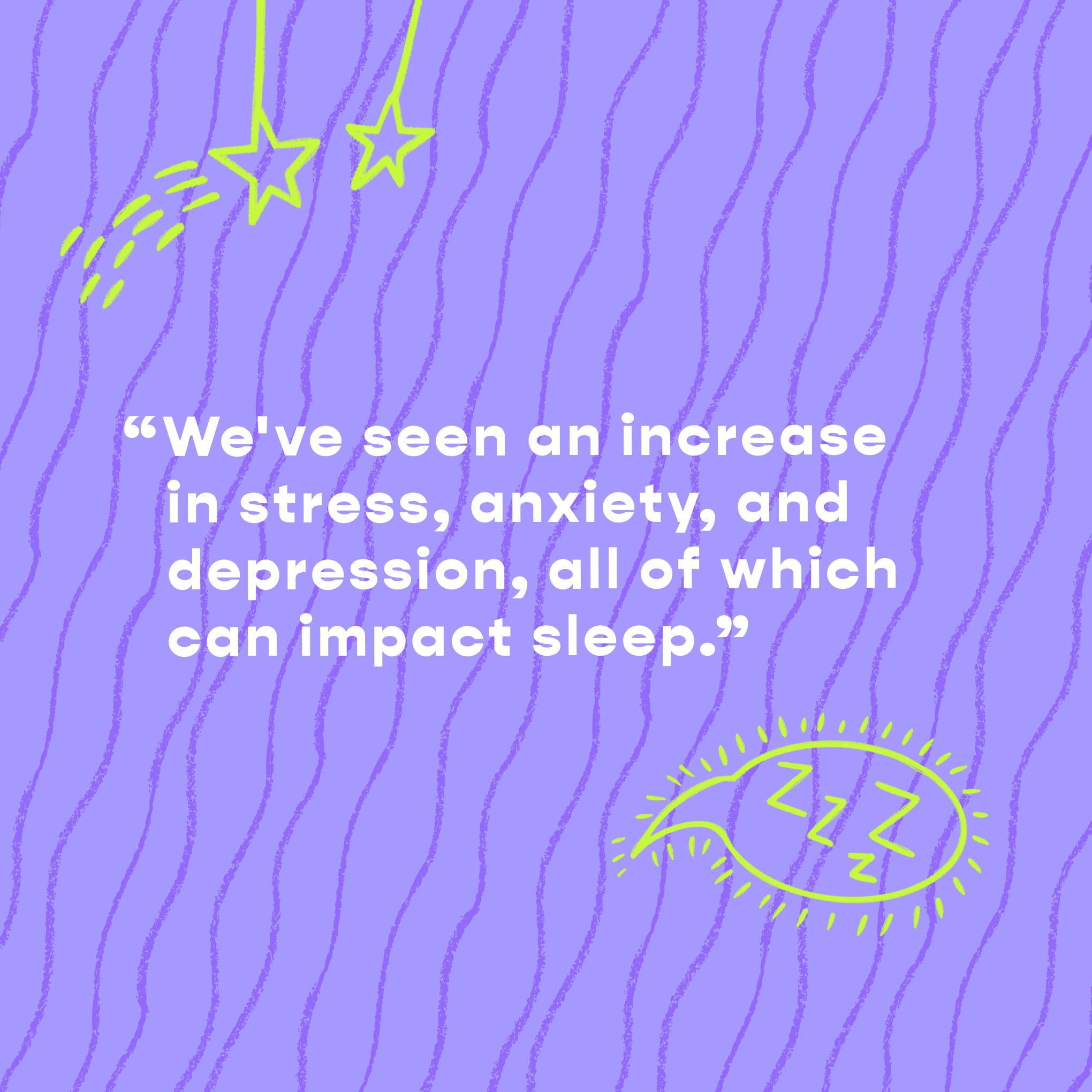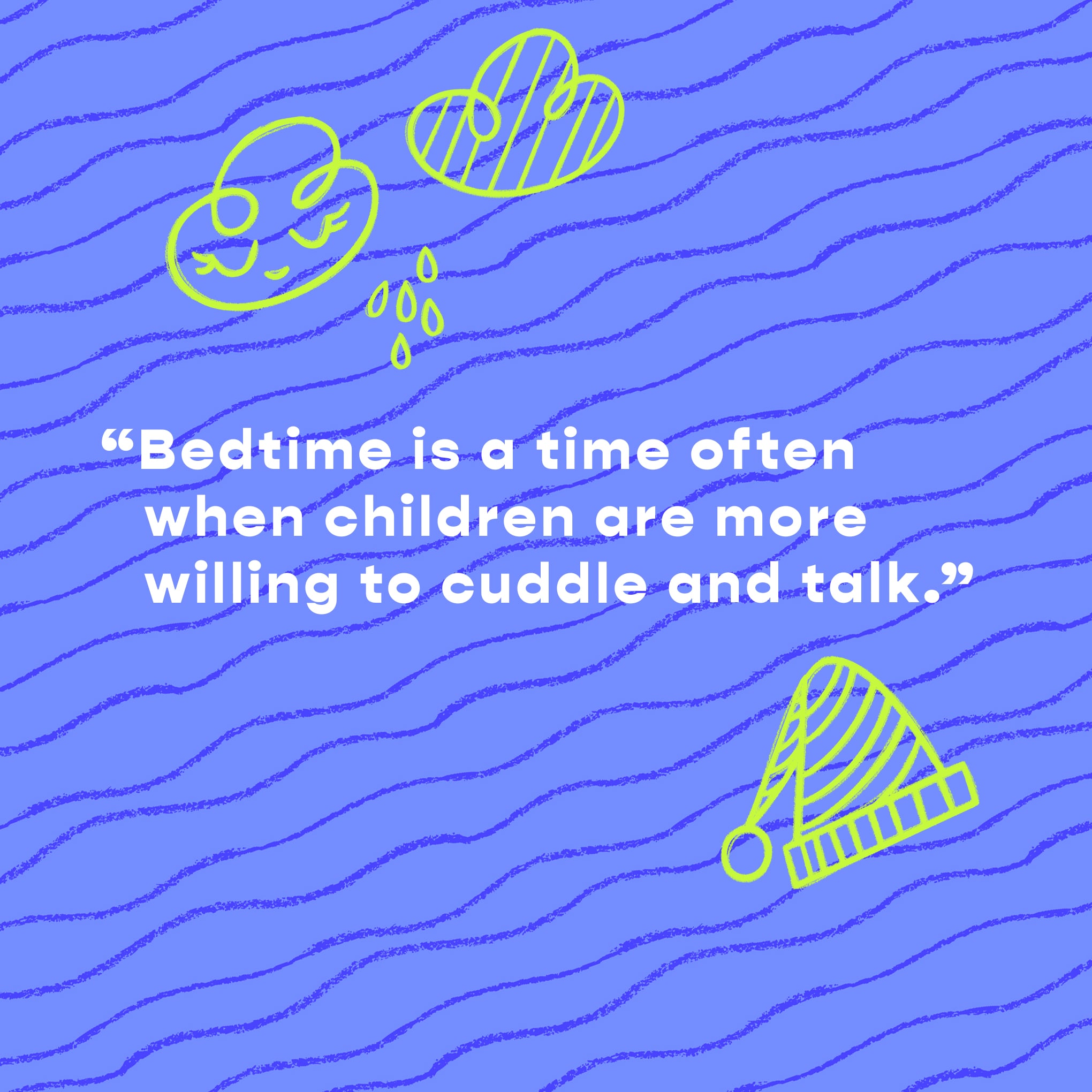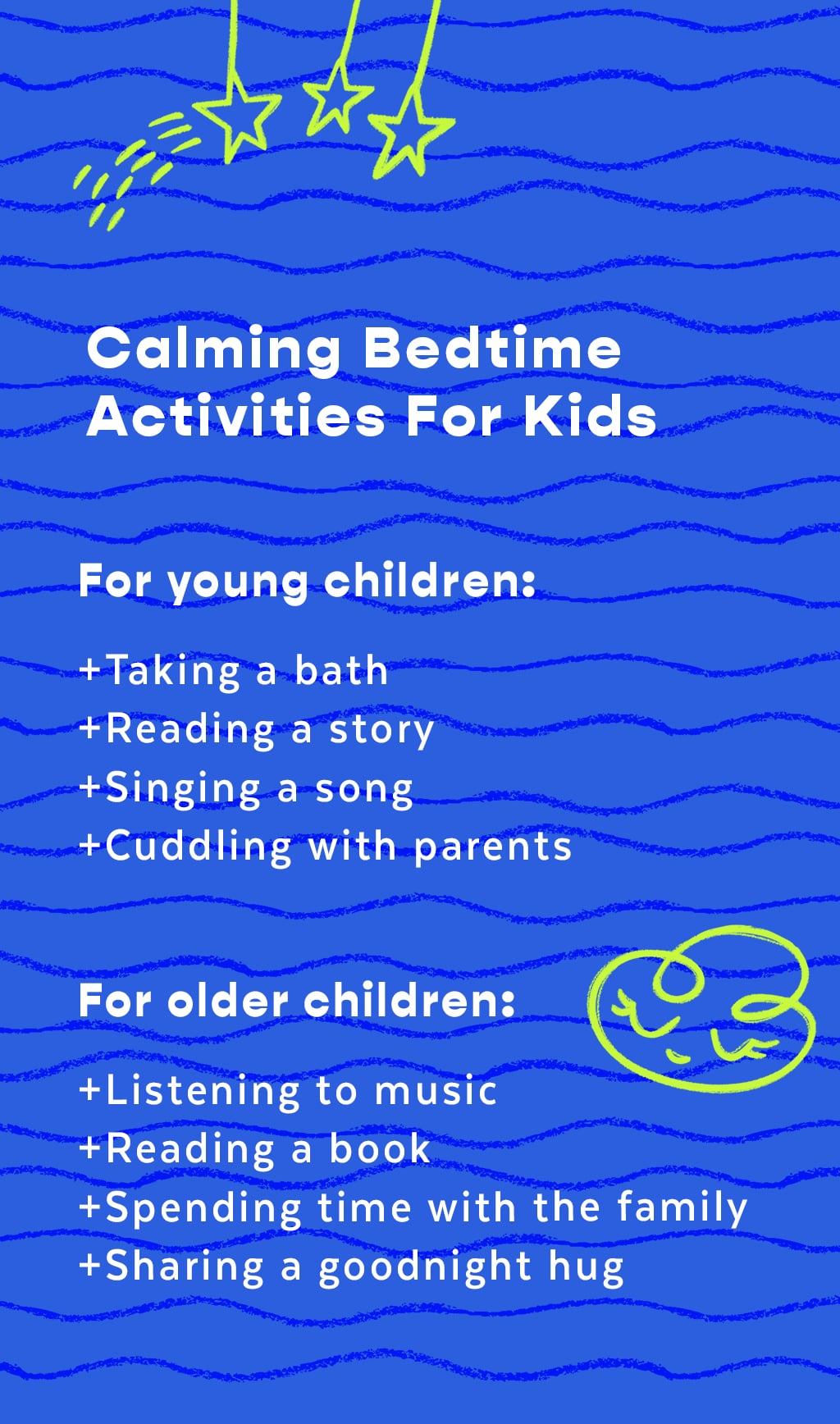
Pediatrician's Tips For Healthy Sleep Habits For Kids
Follow These Pediatrician-Approved Tips to Make Sure Your Child Is Getting Enough Sleep

Bedtime can be one of the biggest showdowns between kids and parents. Little ones don't want to go to sleep, but parents are desperate to get them into bed so they can get some rest themselves.
It's something that Dr. Joelle McConlogue, a pediatrician at Bayside Medical Group with Stanford Children's Health, sees all the time — in both her roles as a doctor and as a mom to four kids.
Still, making sure your children get plenty of rest is a crucial part of parenting. Even though adults might be able to skate by with less than eight hours of sleep, kids really need that extra rest. "There's a tremendous amount of change that occurs during the childhood years," Dr. McConlogue explained. It's not just physical growth, either: their brains are also busy mastering new skills, learning to regulate their emotions, and processing new experiences for the first time.
Parents usually expect babies to sleep most of the day, but Dr. McConlogue said many people underestimate how much sleep older children need. "It starts in early childhood with sleeping most of the time, anywhere from 18 to 20 hours a day, and then slowly decreases," she said. "Even adolescents need about eight-and-a-half to nine hours of sleep a day."
Of course, it's one thing to know how much sleep your kids need — getting them into bed and making sure they get that rest can be a whole other challenge. Read on to learn everything you need to know about creating a healthy sleep schedule for your kids, from setting limits around screen time to how your pediatrician can help.

Every yawn shouldn't be taken as a sign that your child is sleep-deprived, but Dr. McConlogue said there are a few things parents can watch for. Common signs that children aren't getting enough rest include feeling groggy during the day, falling asleep in class, or struggling to wake up in the morning. "Certainly there's a transition between being asleep and being awake, but it shouldn't be a really hard struggle," Dr. McConlogue said.
Emotional changes can be another big indicator that kids aren't getting enough sleep. If you notice that your child is crankier or more irritable than usual, it might also be a sign that something is off with their sleep habits.
If you're concerned about your child's sleep, the first thing to examine is their daily routine. "Not having a consistent routine will impact both the quality and quantity of sleep," Dr. McConlogue said. "Our bodies tend to like routine, and the body needs a time when it knows it's going to wind down."
To create that routine, make sure your child's bedtime and wake-up time stay the same every day. "When kids have different bedtimes — staying up late one night and going to bed early the next — sometimes it makes it difficult to get that routine, regular sleep," she said. Dr. McConlogue even said parents should encourage their kids to wake up at a similar time on weekends. It's OK to sleep in an hour more than usual, but diverging too much from their regular schedule will affect their sleep cycles. If kids need extra sleep, encourage them to nap instead.

Setting firm limits around bedtime is key, Dr. McConlogue said. She recommended parents sit down with their kids to have a family discussion about their nightly routine. Parents with younger children can use this time to set expectations about the rules of bedtime, while parents with older kids and teens can have a more collaborative conversation to get their kids' buy-in.
In addition to setting a regular bedtime, parents will also want to create some rules around what kids should and shouldn't do in the hour before bed. Screen time can be particularly disruptive, Dr. McConlogue said. "This has been a big issue during the pandemic because our children and teens are spending so much more time on screens," she explained. "We've seen an increase in stress, anxiety, and depression, all of which can impact sleep."
Dr. McConlogue recommended removing all screens from the bedroom an hour before bedtime and instead switching to calming activities. For younger children, that might mean taking a bath, changing into their pajamas, and reading a story with their parents. Teens and older children don't need the same amount of parental supervision at bedtime, but they should still prioritize relaxing activities like reading or listening to music.
Ensuring that teenagers get a good night's sleep can be even more challenging, since they tend to have more irregular schedules. The pandemic has only further upended their usual routines — and sent their screen time through the roof. "One of the things we've lost with being at home is routine," Dr. McConlogue said. Teens might have trouble falling asleep or wake up in the middle of the night and not be able to go back to sleep.

That's why it's more important than ever for parents to really reinforce those bedtime routines, Dr. McConlogue said. She also encouraged parents to reach out to their pediatrician for advice, especially if they're noticing increased levels of stress, anxiety, or depression in their children. Parents should also reach out to their child's doctor if they notice any signs of sleep apnea, like difficulty breathing, excessive snoring, or extra restlessness at night.
Even though bedtime can seem like an ordeal, Dr. McConlogue said thinking of it as an opportunity to spend some quality time with your kids can make it more enjoyable for everyone. "Bedtime is a time often when children are more willing to cuddle and talk," she said. "It can be a really sweet time for parents and children to connect if they take the time."
For one thing, right before bed is often a time when kids want some affection from their parents, Dr. McConlogue said. Little ones might want to crawl into Mom or Dad's lap for some cuddles or hugs before being tucked in. "Even with our older kids, I encourage parents to just stop by their room and sit on the bed for a few minutes," she said. Dr. McConlogue explained that sometimes, teens are a bit more willing to open up to their parents in those last few minutes of the day. Something as simple as a quick hug and check-in can really help you connect in a low-pressure way.
"Being a parent myself, I know this so well," Dr. McConlogue said. "Bedtime can be so hard, and it can be a struggle, but if you put the time and the effort into trying to set those routines, it can also be a really nice time in the busyness of our lives to just connect for five to 10 minutes with our kids."

Design: Danielle Hartley